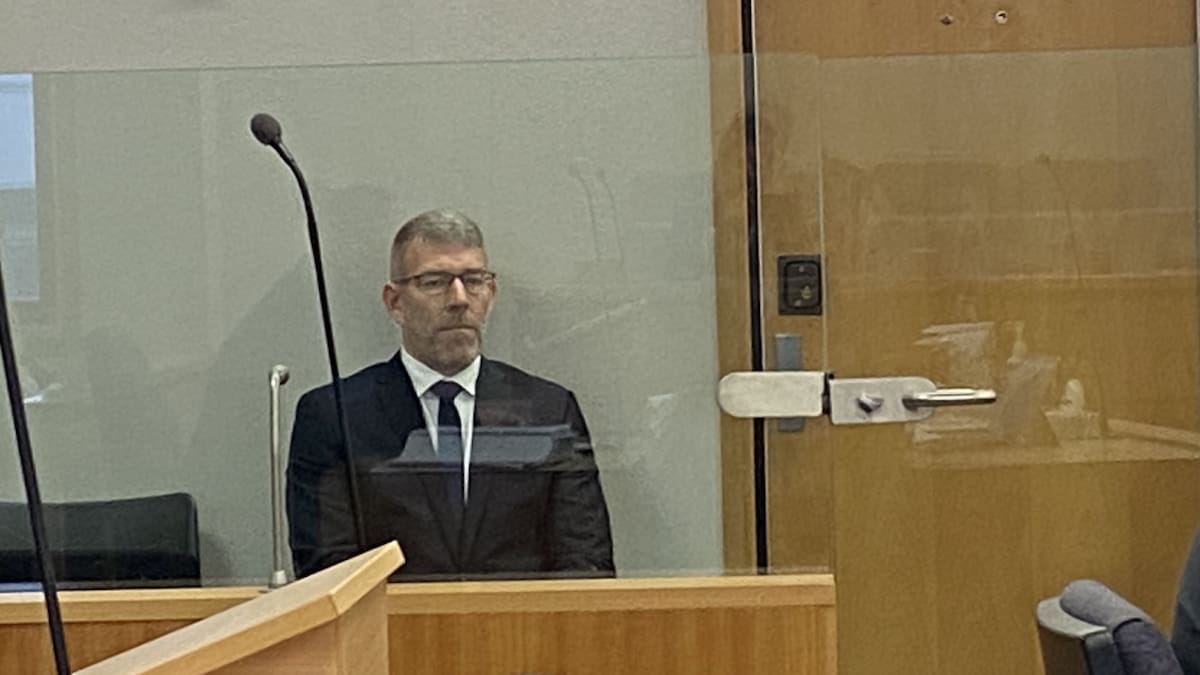Sanders in 2020 agreed to the Kaizon group buying The Fire Guys.
“Before the acquisition, The Fire Guys was a lean, well-run business. We employed over 30 staff and 100 contractors, and we met all our financial obligations, including PAYE and other IRD requirements,” Hogg said.
“We had doubled our revenue and profits year-on-year, and our reputation was strong.”
Hogg said Sanders held directors’ meetings and showed reports that misrepresented the company’s real position.
PAYE deductions, including child support, were withheld from staff pay, Hogg told the court.
He said Sanders displayed “mindless arrogance” and diverted funds away from tax obligations.
“I personally injected $90,000 into the business to help pay suppliers and contractors during a tough period, many of whom were refusing to work due to non-payment,” he said as he stood in court to read a victim impact statement.
“The consequences for me were devastating – financial hardship, severe stress, the breakdown of my marriage, reputational damage in the specialised industry which I’ve operated in for 20-plus years.”
Defence lawyer Julie-Anne Kincade KC said Sanders had an unblemished record.
Kincade referred to a divorce Sanders had.
“He didn’t take any assets out of that marriage and left them all to his wife.”
But he did take shares in companies and believed he could trade his way out of problems, Kincade said.
The court heard Sanders went to Australia after the Kiwi businesses hit the skids, then returned when it became clear Inland Revenue was prosecuting him.
Sanders on LinkedIn today described himself as director of operations for Chubb Fire & Security in Rydalmere, New South Wales.
Kincade said Sanders had not tried to dodge justice.
She said a warrant was issued in June and proceedings lodged in Christchurch for reasons unexplained, but Sanders did not know he had to be in court that day.
She said Sanders learned of the proceedings in July, but his first appearance was in Auckland in September, when he entered guilty pleas.
The court heard Sanders had been declared bankrupt in Australia and New Zealand.
“There’s the deep shame he feels. It’s been overwhelming for him,” Kincade said.
“He’s gone from someone who’s successful in business … to this situation now where everything has collapsed.”
For Inland Revenue, prosecutor Kelly King said there was no prospect of reparation.
King said Sanders knew that if he left New Zealand, but returned when charges were laid, he’d likely get a discount at any sentencing.
She said that in the industry linked to fire protection and security, trust was important, and Sanders had betrayed that.
She acknowledged he’d done good community work as a St John ambulance service volunteer.
But King said it was concerning to see Sanders “deflecting” by implying company board members had some culpability or responsibility for non-payment of tax.
Sanders admitted four charges of aiding and abetting non-payment of tax.
Judge Steve Bonnar, KC, said Sanders was the “controlling mind” of the companies.
“This was not your money. It was not the company’s money. It was the employees’ money. It was the employees’ tax.”
For The Fire Guys alone, PAYE was not paid on 21 occasions, amounting to about $1,073,293.
For Kaizon companies, about $330,000 went unpaid.
The deceit happened despite the companies getting Covid wage subsidies worth about $740,000.
He said Covid did not mean any business could abuse the tax system.
Sanders nodded as he sat in the dock.
Judge Bonnar said Sanders had claimed he had to choose between laying off people and not paying PAYE.
“You told the probation officer that the IRD ‘pushed’ the companies into liquidation.”
Prosecutors wanted a starting point of about four years and six months’ jail.
The defence called for two and a half years’ jail before discounts.
Judge Bonnar said Sanders’ offending had aggravating features.
First was the amount of money, second was the duration of offending, and third was the breach of trust.
He chose a starting point of three years and 10 months.
Sanders got a 25% discount for early guilty pleas and 10% for previous good character.
He also received discounts for remorse and for adverse consequences he’d already faced.
That meant a discount of 50%, and a result of 23 months, just below the two-year threshold for considering home detention.
Sanders was told to travel home and wait for a field officer to connect a home detention tracker.
The court heard Sanders would go to Australia after his sentence.
John Weekes is a business journalist covering aviation. He has previously covered consumer affairs, crime, politics and courts.
Stay ahead with the latest market moves, corporate updates, and economic insights by subscribing to our Business newsletter – your essential weekly round-up of all the business news you need.

